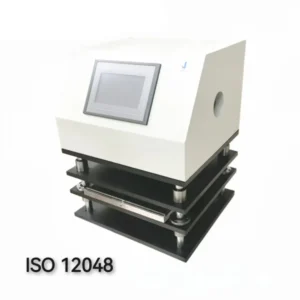Maximizing Package Integrity with Packaging Compression Strength Tester
In today’s fast-paced logistics and pharmaceutical supply chains, packaging compression strength tester solutions are indispensable for safeguarding product quality and consumer safety. At Cell Instruments, we understand the significance of maintaining packaging integrity under real-world stress. This article provides a professional yet accessible overview of compression testing, guided by ISO 12048, and introduces effective testing methods that enhance packaging reliability—especially when using high-performance equipment like the PCT-01 Package Compression Tester.
Understanding the Role of Packaging Compression Strength Tester
A packaging compression strength tester is a precision instrument designed to measure how much compressive force a packaging unit can endure before it deforms or fails. Commonly applied to composite film packs, infusion bags, plastic bottles, and corrugated containers, this test provides essential data for packaging engineers, quality control professionals, and regulatory compliance teams.
This type of testing is vital in medical, food, and logistics industries where packages may face stacking pressure, transport shocks, and prolonged warehouse stress. Ensuring a packaging solution withstands compressive forces not only protects the contents but also contributes to environmental sustainability by reducing material waste due to damage or product spoilage.
ISO 12048: Testing Framework and Significance
The ISO 12048 standard—titled “Packaging — Complete, filled transport packages — Compression and stacking tests using a compression tester”—is a widely accepted benchmark that outlines procedures for assessing compressive strength in a structured, repeatable manner.
Key highlights from ISO 12048 include:
- Test Objectives: Evaluate the packaging’s structural integrity and the protection it provides to its contents under vertical loads.
- Test Conditions: Samples must be preconditioned at 23°C and 50% relative humidity for 48 hours.
- Test Execution: A constant compression speed—(10 ± 3) mm/min—is applied until failure or a predefined endpoint is reached.
- Measurement Accuracy: The tester must provide force measurements within ±2% error.
- Platen Specifications: Parallelism between pressure plates must be within 1:1000 tolerance for accurate force application.
- Data Recording: Continuous load vs. deformation data capture is mandatory to identify peak load and failure points.
These provisions ensure that testing reflects real-world scenarios and supports decision-making in design, quality assurance, and packaging compliance.
Test Execution: From Setup to Interpretation
Proper use of a packaging compression strength tester follows a structured process:
Sample Preparation & Conditioning
Ensure test samples are clean, undamaged, and preconditioned as per ISO 12048.Equipment Setup
The specimen is placed between parallel upper and lower platens of the tester. Accurate alignment is critical to avoid skewed results.Test Parameters
Set compression speed, endpoint conditions (load, deformation, or collapse), and safety limits.Test Run
The upper platen compresses the specimen. Real-time data on load and deformation are displayed and logged.Analysis
Review force-deformation curves to determine maximum load capacity, elastic deformation zone, and failure thresholds.
Why Choose the PCT-01 Package Compression Tester from Cell Instruments
At Cell Instruments, our PCT-01 Package Compression Tester offers cutting-edge features that ensure accurate, reliable, and standard-compliant testing. With precise load cells, automatic data logging, and customizable test settings, the PCT-01 is ideal for evaluating packaging formats like:
Medical infusion bags and plastic bottles
Food trays and laminated pouches
Blood bags and pharmaceutical secondary packaging
Additionally, the PCT-01 meets all critical requirements of ISO 12048 and ASTM D642, offering:
Force measurement accuracy within ±2%
Customizable compression endpoints
Parallel platen design with overload protection
Real-time curve plotting for advanced analysis
Benefits of Compression Testing for Packaging Development
Implementing compression tests with a quality-certified packaging compression strength tester ensures:
Improved packaging designs with validated durability
Fewer product losses due to collapse or crushing during transit
Regulatory compliance across pharmaceutical, food, and e-commerce industries
Sustainable packaging strategies through optimized material usage
Moreover, aligning tests with ISO 12048 not only enhances credibility with partners and clients but also supports global market access for regulated products.
Conclusion

Understanding and applying the principles of ISO 12048 through an advanced packaging compression strength tester like Cell Instruments’ PCT-01 empowers packaging professionals to make data-driven decisions. From medical infusion bags to retail containers, compression testing is an essential quality tool for ensuring product safety, regulatory compliance, and brand reputation.
To learn more or schedule a demonstration, visit Cell Instruments Co., Ltd. and explore how we can customize solutions to your specific packaging test requirements.